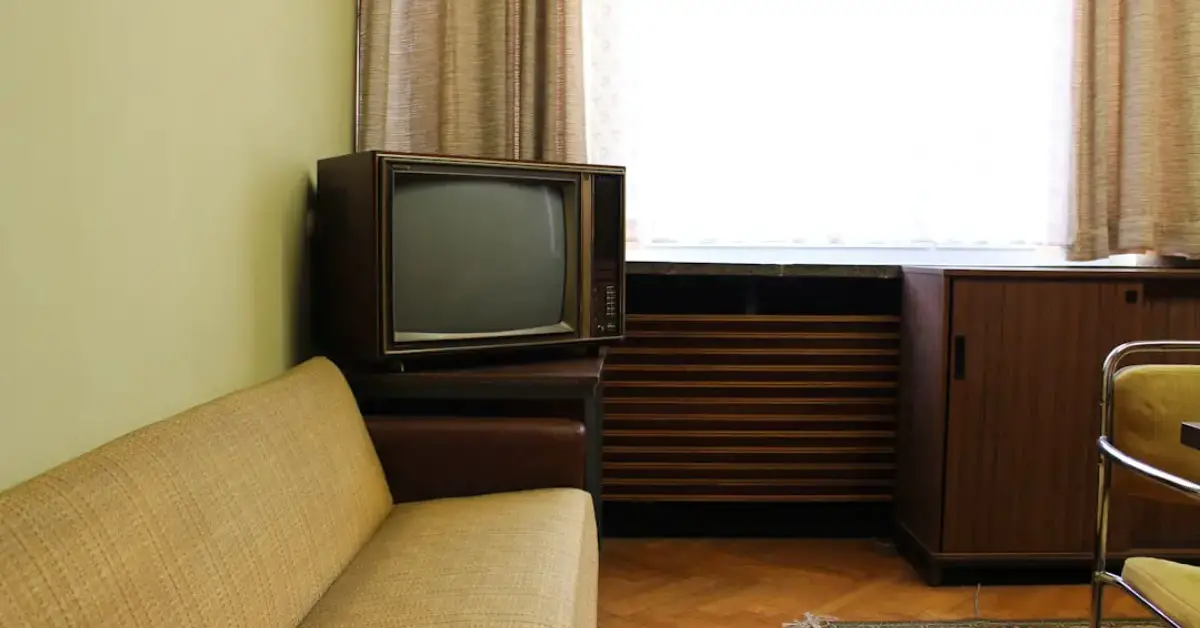Yes, you can use a projector as a TV by connecting it to a streaming device. Projectors can provide a large-screen viewing experience similar to a TV.
When setting up a projector as a TV alternative, consider factors like room lighting, screen size, and image quality. By adjusting these settings, you can create a home theater setup that rivals traditional television viewing. Additionally, projectors offer flexibility in screen size, making them ideal for movie nights or sports events with friends and family.
With the right setup, a projector can serve as a versatile and cost-effective TV replacement for an immersive entertainment experience.
Table of Contents
Introduction To Projector Usage
Discover how to use a projector as a TV for an immersive viewing experience. Projectors offer a versatile alternative to traditional TVs, allowing you to enjoy larger screen sizes and flexibility in setting up your entertainment space. With the right setup, you can easily transform your projector into a TV-like experience for movies, gaming, and more.
Brief History Of Projectors
Projectors have a rich history dating back to the 17th century when the first known “magic lantern” was invented. This early form of projector utilized translucent paintings and a concave mirror to project images onto a wall or screen.
Evolution Into Multimedia Devices
Over time, projectors evolved into sophisticated multimedia devices capable of displaying high-quality images and videos. The technological advancements in projection technology have transformed projectors into versatile tools suitable for various applications.
Comparing Projectors And Tvs
Image Quality Differences
When it comes to image quality, TVs generally offer better brightness and contrast compared to projectors. This is because TVs are designed with backlighting and use LCD or OLED technology, providing sharper and more vibrant images. On the other hand, projectors rely on ambient light control for optimal viewing conditions and may not deliver the same level of clarity and color accuracy as TVs.
Cost Considerations
Cost is a significant factor when deciding between a projector and a TV. While high-quality TVs can be expensive, projectors often provide a larger screen size for a lower price. However, it’s essential to factor in the cost of additional accessories such as screens, mounts, and sound systems for projectors, which can increase the overall investment.
Key Features Of Modern Projectors
Resolution And Brightness
Modern projectors are equipped with high-resolution capabilities, ensuring crisp and clear image quality. They offer various resolution options, including 1080p, 4K, and even higher, providing an immersive viewing experience. Additionally, the brightness levels of modern projectors have significantly improved, making them suitable for use in various lighting conditions, including well-lit rooms and outdoor environments.
Connectivity Options
Modern projectors come with a plethora of connectivity options, enabling seamless integration with various devices. They feature HDMI, USB, and wireless connectivity, allowing users to effortlessly connect laptops, gaming consoles, streaming devices, and smartphones. Furthermore, the inclusion of Bluetooth and Wi-Fi connectivity ensures versatile and hassle-free connectivity options for a truly integrated viewing experience.
Setting Up A Projector For Tv Viewing
Projectors are a popular alternative to televisions for home entertainment systems. They provide a larger screen size and higher resolution than most TVs, making them ideal for movie nights, gaming, and sports events. Setting up a projector for TV viewing is easy and can be done with just a few basic steps.
Choosing The Right Location
Choosing the right location is crucial when setting up a projector for TV viewing. You need to find a place that is dark enough to see the projected image clearly. Avoid rooms with large windows or bright lights, as this can wash out the image and reduce the overall quality. A dedicated home theater room is ideal, but a living room or bedroom can work as well if you can block out the light.
Required Equipment And Setup
To set up a projector for TV viewing, you will need a few pieces of equipment:
| Equipment | Description |
| Projector | A device that projects an image onto a screen or wall. |
| Screen or Wall | A surface on which the projected image is displayed. |
| Speakers or Sound System | Audio equipment to enhance the viewing experience. |
| Media Source | A device that provides the content to be viewed, such as a cable box, streaming device, or DVD player. |
| Connecting Cables | Cables to connect the projector to the media source and speakers. |
Once you have all the required equipment, you can set up the projector by following these steps:
- Place the projector on a stable surface, such as a table or stand.
- Connect the projector to the media source using the appropriate cable, such as HDMI or VGA.
- Connect the speakers or sound system to the projector using the appropriate cable, such as RCA or optical.
- Adjust the focus and zoom on the projector to get the best image quality.
- Turn on the projector and media source, and enjoy your TV viewing experience!
Benefits Of Using A Projector As A Tv
If you’re looking for a unique home theater experience, using a projector as a TV is a great option. Not only can it provide a larger screen size potential, but it also offers flexibility in use and placement. Here are some of the benefits of using a projector as a TV:
Larger Screen Size Potential
One of the most significant benefits of using a projector as a TV is the potential for a larger screen size. While most TVs max out at around 70 inches, projectors can display images up to 300 inches or more, providing a truly immersive viewing experience. Whether you’re watching a movie, playing a video game, or streaming your favorite TV show, a larger screen can make all the difference.
Flexibility In Use And Placement
Another advantage of using a projector as a TV is the flexibility it offers in terms of use and placement. Unlike traditional TVs, projectors can be mounted on the ceiling, placed on a shelf, or even taken outside for movie nights under the stars. Additionally, projectors can be connected to a variety of devices, including laptops, gaming consoles, and streaming devices, providing endless entertainment options.
Overall, the benefits of using a projector as a TV make it an attractive option for those looking to enhance their home theater experience. With a larger screen size potential and flexibility in use and placement, it’s no wonder more and more people are opting for projectors over traditional TVs.
Challenges And Limitations
Ambient Light Issues
Projectors struggle in brightly lit environments, making it challenging to achieve a high-quality viewing experience. Darkening the room or investing in ambient light-rejecting screens can help mitigate this issue. Strategic placement of the projector and adjusting the screen size may also aid in reducing the impact of ambient light.
Maintenance And Lamp Life
Projectors require regular maintenance and replacement of lamps, which can add to the overall cost. Cleaning the filters and ensuring proper ventilation is crucial for extending the lamp life. Choosing a projector with a longer lamp life and opting for energy-saving modes can help minimize maintenance requirements.
User Experiences And Case Studies
As more people consider using projectors as an alternative to traditional TVs, it’s valuable to explore real-world user experiences and case studies. By examining how individuals have integrated projectors into their home entertainment setups, we can gain insight into the practicality and benefits of this approach.
Home Theater Setups
Many individuals have successfully created immersive home theater experiences using projectors. By pairing a high-quality projector with a sound system and ambient lighting, users have achieved cinema-like atmospheres in their living rooms or dedicated home theater spaces. This setup often provides a larger screen size compared to conventional TVs, enhancing the viewing experience for movies, sports events, and gaming.
Multipurpose Room Configurations
Projectors are also popular in multipurpose rooms, where they can serve as both a TV and a presentation tool. Users have reported using projectors to watch TV shows and movies, then seamlessly transitioning to displaying work presentations or educational content. This flexibility allows for efficient use of space and resources, making projectors a versatile choice for various living arrangements.
Future Trends In Projector Technology
Advancements In Led And Laser Technology
The advancements in LED and laser technology have revolutionized the projector industry. LED projectors offer long-lasting brightness and color performance, while laser projectors provide crisp and vivid images with minimal maintenance requirements.
Integration With Smart Home Systems
Projectors are now becoming an integral part of smart home systems, allowing seamless integration with voice control and automation features. This integration enhances convenience and creates a truly immersive home theater experience.
Frequently Asked Questions
Can A Projector Replace A Tv?
Yes, a projector can replace a TV for larger screen viewing, but consider factors like brightness and room lighting.
Can You Play Tv Through A Projector?
Yes, you can play TV through a projector by connecting the TV output to the projector input using compatible cables.
Is A Projector A Good Alternative To A Tv?
Yes, a projector is a great TV alternative for larger screen sizes and immersive viewing experience.
Can You Use A Projector As A Tv During The Day?
Yes, you can use a projector as a TV during the day, but it works better in darker settings.
Conclusion
Using a projector as a TV can be a versatile and cost-effective option for entertainment. With advancements in technology, projectors offer high-quality viewing experiences. Consider your space and preferences to determine if a projector suits your needs. Embrace the flexibility and immersive entertainment a projector can provide.

